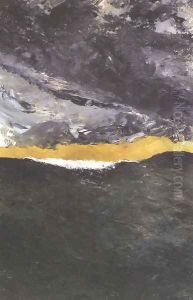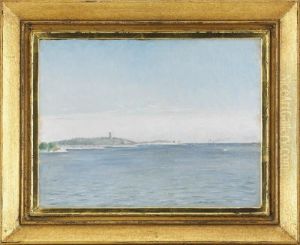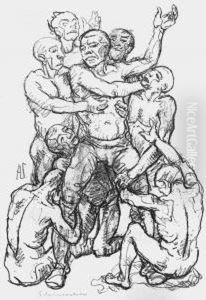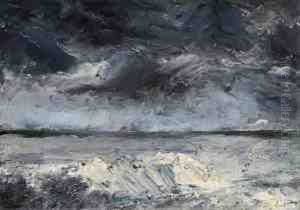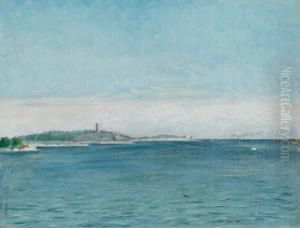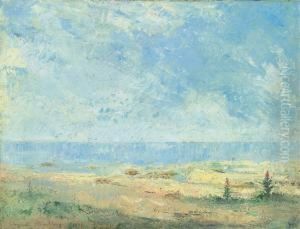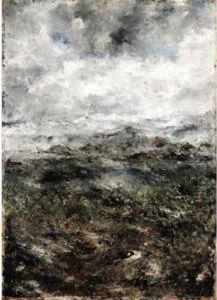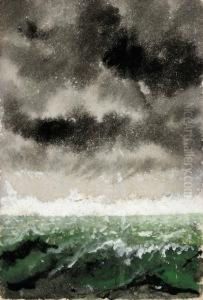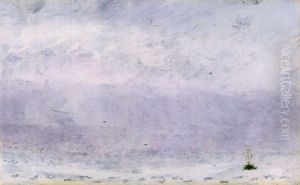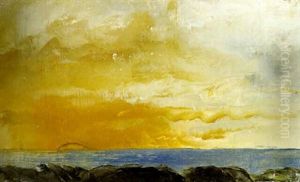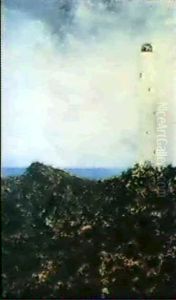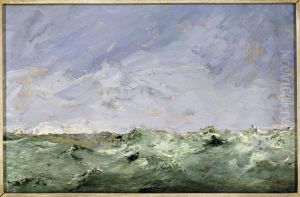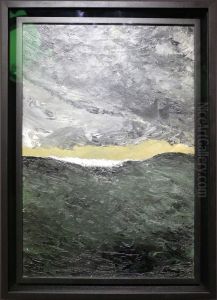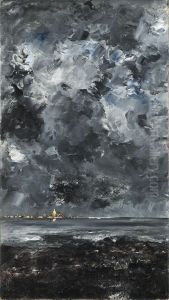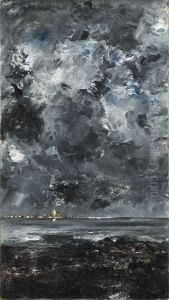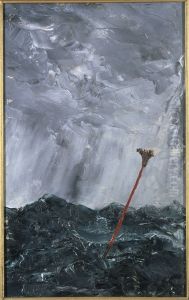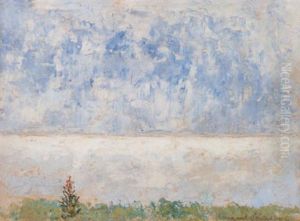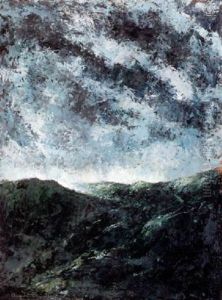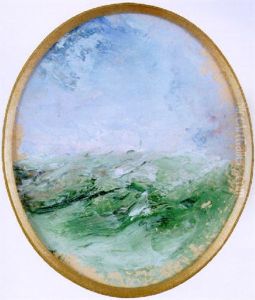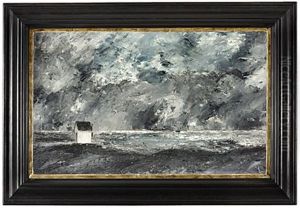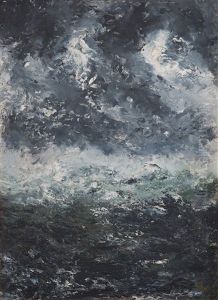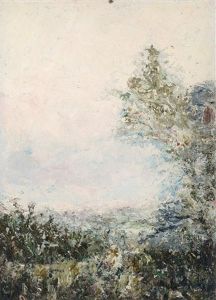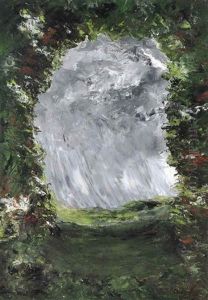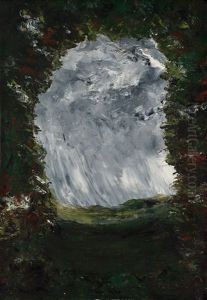August Strindberg Paintings
August Strindberg was a Swedish playwright, novelist, poet, essayist, and painter, recognized as one of the fathers of modern Swedish literature. Born on January 22, 1849, in Stockholm, Sweden, Strindberg grew up in a tumultuous household that would later influence many of his literary themes, including class struggle, marriage, and the battle of the sexes. He attended Uppsala University but left without graduating to pursue a career in writing. Strindberg's early work was influenced by his interest in science and the natural world, as well as by his tumultuous personal life, including three marriages, each fraught with difficulty.
Strindberg is perhaps best known for his plays, which were groundbreaking in their psychological depth and use of naturalism and expressionism. His most famous plays include 'The Father' (1887), 'Miss Julie' (1888), 'The Ghost Sonata' (1907), and 'The Dance of Death' (1900). These works explore themes of love, hate, power, and betrayal, often against the backdrop of a rapidly changing society. Strindberg's contributions to the theatrical world also include his development of a more fluid form of drama, which broke away from the strict rules of classical theatre to explore the complexities of the human psyche.
In addition to his plays, Strindberg wrote novels, short stories, poetry, and essays on various subjects, including science, history, and politics. His autobiographical series 'The Son of a Servant' (1886–1909) provides insight into his early life and the development of his social and political ideas. Strindberg's work was controversial in his time, often criticized for its pessimism, misogyny, and perceived obscenity, leading to legal challenges and social ostracism. Despite this, he is now celebrated as a visionary who anticipated many of the themes and techniques of 20th-century literature and drama.
Strindberg's interest in painting and photography also played a significant role in his creative output, with his artworks exhibiting the same intensity and exploration of psychological states as his literary works. He died on May 14, 1912, in Stockholm, but his legacy lives on through his extensive and diverse body of work, which continues to be studied, performed, and admired around the world.

